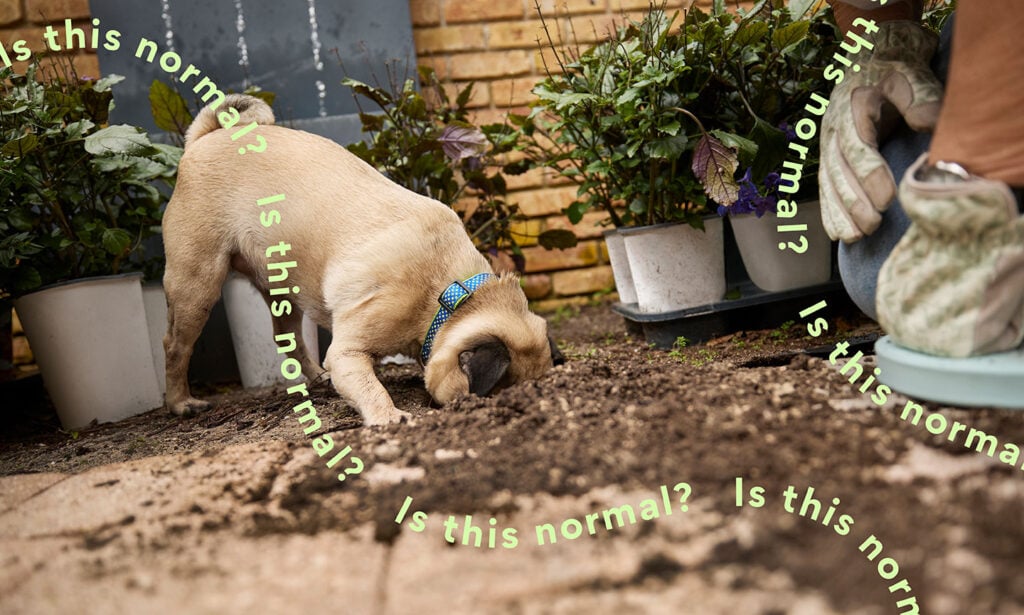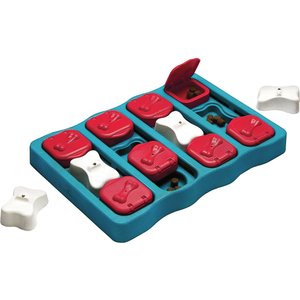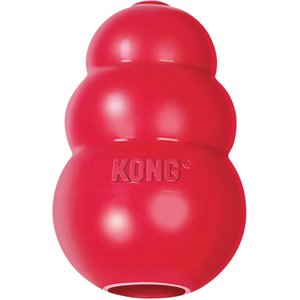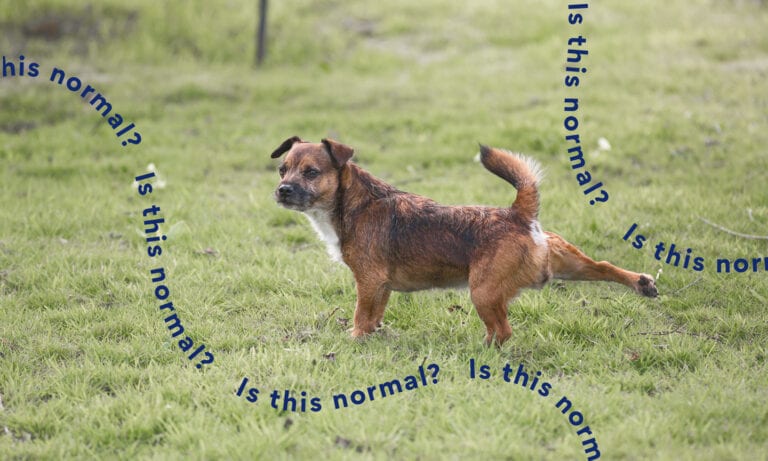Q:I notice that sometimes my dog likes to eat dirt—whether it’s outside while playing or inside from my indoor plants. Why do dogs eat dirt? Is this normal?
Catching your dog eating dirt might throw you for a loop. If it’s once in a while and mainly because they’re curious, it’s pretty normal. It’s not normal if the dirt eating is repetitive or excessive.
Reasons Why Dogs Eat Dirt
Dogs use their mouths to explore their world. Testing out a little piece of dirt here and there is pretty normal dog behavior. But actually eating it, especially compulsively or excessively, is not normal. Eating objects that are not food-related is an eating disorder called pica. Pica is typically considered a mental health issue, but it also can be the result of a medical condition or poor nutrition.
Sheer Curiosity
"A dog's mouth is the only part of their body that can grasp things, so picking things up with their mouth is one of the ways that they explore the world and satisfy their curiosity about the objects that attract them by sight, scent or sound—much like a human toddler," says Alexandra Bassett, CPDT-KA, the lead trainer and behavior specialist at Dog Savvy Los Angeles.
Bassett says it's not unusual for dogs to pick up sticks or rocks, give them an exploratory chomp, and then to spit them back out once they've realized that they're not as delicious as they might've looked.
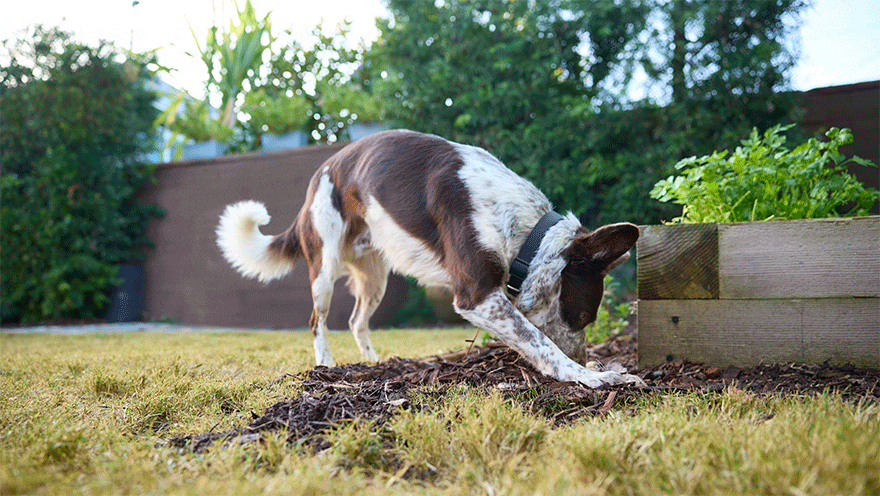
Chewy Studios
Puppies are especially notorious for exhibiting dirt-eating behavior. “When it comes to puppies, the curious ones often explore by tasting everything, including dirt,” says Kelly Hood, DVM, a small animal and urgent care veterinarian in the Hampton Roads region of North Carolina, and in-house vet expert at custom pet portrait company PetPortraits. She says this is all part of a puppy’s learning journey as they get acquainted with the world around them.
Lack of Nutrients or Minerals
"Some think [this behavior] arises from a dog's need for additional minerals or to aid in digestion," says Antje Joslin, DVM, a Tolleson, Arizona-based veterinary consultant at national dog daycare franchise Dogtopia.
If your dog is on a commercial dog food that meets the Association of American Feed Control Officials’ (AAFCO) standards for a complete and balanced diet (look for the AAFCO statement on the bag), they should not need any additional supplementation or have any nutritional deficiencies. However, dogs on alternative diets, such as homemade diets that are not balanced, may sometimes eat dirt if they aren't getting enough nutrients from their food. The instinct to eat dirt for this reason came from dogs’ ancestors. Wild dogs would eat dirt to get vitamins and minerals that may have been missing from their diets.
The nutritional deficiency also may be caused by an underlying health issue, such as an intestinal parasite, which could be preventing adequate nutrition uptake, Dr. Hood says.
If you suspect your dog may have a nutritional deficiency, make an appointment with your vet so they can run tests.
Underlying Medical Condition
If your dog is eating dirt, it could be a sign of an underlying medical condition. In these cases, it is essential to take quick action and contact your veterinarian to discuss further.
Common underlying medical conditions linked to this behavior include gastrointestinal illnesses, such as those that cause nausea or gastrointestinal discomfort, including gastritis. If your dog has an intestinal parasite, they may also seek out dirt. Some common intestinal parasites in dogs include hookworm, tapeworm and roundworm. To learn more, check out our guide to common dog parasites.
Behavioral Issue
If you’ve ruled out underlying medical issues and a nutritional deficiency, your dog might eat dirt because of behavioral reasons, such as the below:
Dogs may find the taste or texture of dirt stimulating, “especially if they are left alone for extended periods of time without stimulation,” Dr. Joslin says.
However, if you suspect your dog is eating dirt due to anxiety or separation anxiety, talk to your vet. They can confirm the symptoms you’ve noticed are really caused by anxiety and recommend an appropriate treatment plan.
Is Eating Dirt Bad for Dogs?
As a rule of thumb, Dr. Joslin says it’s likely not harmful for dogs to eat a small amount of dirt. “And many dogs do eat dirt periodically,” she says.
However, if your furry friend eats a large amount of dirt or other debris, that’s another story. “It could lead to GI issues or to—while rare—a GI blockage,” adds Dr. Joslin. It’s also important to note that, besides dirt, dogs may also try to eat sticks and plants.
Eating dirt may also expose your dog to toxins, like pesticide or fertilizer; parasites; bacteria or fungal spores.
“Make sure to visit your veterinarian if you suspect exposure to any of these,” says Dr. Joslin. “And always keep your pet up to date on vaccinations and deworming.”
What To Do if Your Dog Eats Dirt
In short, Dr. Joslin says whether you should take your dog to the vet will depend on the situation.
If your dog eats only a small amount of dirt infrequently and there is no concern for toxins or ingestion of foreign objects such as rocks, it may be OK to monitor them at home. “Many dogs occasionally eat dirt just because they can, and it is available to them,” Dr. Joslin says.
However, if there is any vomiting, diarrhea, anorexia or lethargy, reach out to your veterinarian.
“If your dog suddenly eats a large amount of dirt or dirt [that] you suspect contains chemicals, toxins or lots of rocks, you should seek veterinary care immediately,” she says.
If you know what substance your pet has ingested, such as pesticides, herbicides, insecticides, or fertilizer on the dirt and grass, you can call one of the pet poison help centers on the way to the vet. These include the Pet Poison Helpline at 1-855-764-7661 and the ASPCA Animal Poison Control Center at 1-888-426-4435. Depending on the substance, your vet may induce vomiting or administer a substance called activated charcoal to bind any toxin.
Remember, time is of the essence in toxicities, so if you suspect your pet ingested any chemical or substance in the dirt, seek immediate veterinary care with your vet or local animal ER.
Signs Your Dog Has Eaten Too Much Dirt
If your dog has eaten too much dirt or dirt containing toxins, they may exhibit the following symptoms:
- Vomiting
- Diarrhea
- Loss of appetite
- Lethargy
- Abdominal pain
In severe cases, tremors, seizures or liver and kidney issues could potentially occur, so it's important to take your dog to the vet immediately if you notice any of these clinical signs or have concerns.
How To Stop a Dog From Eating Dirt
Even though a dog eating dirt is quite common, preventing or stopping this behavior as soon as you catch on is important. You can do so in the following ways:
Limit Their Access
One of the simplest ways to stop your dog from eating dirt is to make it less accessible to them, says Dr. Joslin.
You can quickly do this by moving houseplants with soil out of your dog’s reach, and supervising them outdoors while on walks or playing. Be especially cautious when using any type of fertilizer or plant food around your pets, she says.
Keep Them Stimulated
Regular physical exercise and mentally enriching activities may deter your dog from eating dirt. Activity helps prevent boredom, thus minimizing the likelihood of “dirt-eating or other destructive behaviors,” says Dr. Joslin.
If you have an especially energetic dog who likes to play with other pooches, sign them up for doggy daycare. “Taking your dog to doggy daycare can help provide the exercise and enrichment your dog needs,” she says.
Hide-and-seek toys, puzzles and chew toys are great options to help keep your dog engaged and stimulated. Here are a few that come highly rated by Chewy customers:
Teach Commands
Limiting access to dirt can be tricky—especially when there’s so much of it outside! That’s why you should teach your dog basic commands so you’re equipped if they do start eating dirt while you’re with them.
“Teach your dog commands such as ‘leave it’ or ‘drop it’ and use positive reinforcement to redirect their behavior away from dirt-eating,” says Dr. Joslin. Not sure how to do that? Follow the steps in our expert guide on how to teach a dog to drop it.
The Takeaway
A dog eating dirt may be baffling, but in most cases, ingesting a small amount of dirt isn’t harmful. However, if the dirt eating is persistent, it may be due to a nutritional deficiency, underlying health issue or behavioral issue. In which case, you should discuss the matter with your vet. If you suspect your dog has eaten dirt with toxins or other harmful substances, take them to your vet immediately.
Dirt isn’t the only odd item dogs sometimes eat. Learn more about why dogs eat grass and why dogs eat poop, and if these too are normal behaviors.
Expert provided by Alexandra Bassett, CPDT-KA, the lead trainer and behavior specialist at Dog Savvy Los Angeles; Antje Joslin, DVM, co-owner at Tolleson Animal Clinic in Tolleson, Arizona, and a veterinary consultant at national dog daycare franchise Dogtopia; and Kelly Hood, DVM, a small animal and urgent care veterinarian and in-house vet expert at custom pet portrait company PetPortraits, based in the Hampton Roads region of North Carolina.
Jelisa Castrodale contributed to this article.
This content was medically reviewed by Chewy vets.
Brush up on more dog behavior:
Share:
